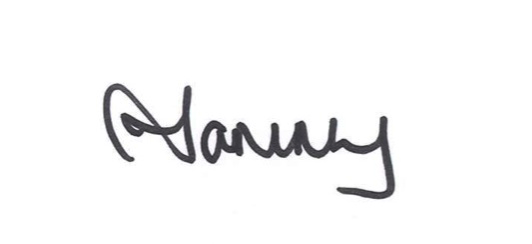
Does this sound like anyone you know?
Steve Wanner is a highly respected 37-year-old partner at Ernst & Young, married with four young children. When we met him a year ago,he was working 12- to 14-hour days, felt perpetually exhausted, and found it difficult to fully engage with his family in the evenings, which left him feeling guilty and dissatisfied. He slept poorly, made no time to exercise, and seldom ate healthy meals, instead grabbing a bite to eat on the run or while working at his desk.
It’s the opening paragraph of a Harvard Business Review article by Tony Schwartz and Catherine McCarthy, titled ‘manage your energy, not just your time‘.
The authors advocate that by managing four aspects of energy – physical, mental, emotional and spiritual, recipients can significantly increase their performance at work and their engagement with life. It mirrors a whole section in my book Do What You Say You’ll Do, on looking after yourself.
Headed for an Energy Crisis?
The authors required that participants complete a short 18 question survey with questions such as:
Body
__ I don’t regularly get at least seven to eight hours of sleep, and I often wake up feeling tired.
__ I frequently skip breakfast, or I settle for something that isn’t nutritious.
Emotions
__ I frequently find myself feeling irritable, impatient, or anxious at work, especially when work is demanding.
__ I don’t have enough time with my family and loved ones, and when I’m with them, I’m not always really with them.
__ I have too little time for the activities that I most deeply enjoy.
__ I don’t stop frequently enough to express my appreciation to others or to savor my accomplishments and blessings.
Mind
__ I spend much of my day reacting to immediate crises and demands rather than focusing on activities with longer-term value and high leverage.
__ I work in the evenings or on weekends, and I almost never take an e-mail–free vacation.
Spirit
__ There are significant gaps between what I say is most important to me in my life and how I actually allocate my time and energy.
__ My decisions at work are more often influenced by external demands than by a strong, clear sense of my own purpose.
Participants then entered into a programme that addressed the various areas of their life, with predictably good results in almost every aspect of their life.
What can you do?
The article is well worth reading, as it is makes well researched points on how energy (of all kinds) affects performance (in all realms of life).
Now, of course Steve Wanner isn’t unusual. His story would be repeated up and down most streets in most cities. Maybe you know a “Steve”. Maybe that “Steve” is even you.
So, the question is what to do about it? Because, we know this stuff. We know that getting enough sleep, eating well, exercising, having grateful and purposeful lives works. There is research paper after research paper that shows that. But there’s the anecdotal evidence too – you know how you just feel better when you do this stuff.
Often people know this stuff, and maybe even want to change, but just are stuck in a cycle. So, what to do? Here are some ideas that might help:
- Read the article, and decide on just one thing that you would like to change, and then go about changing that. Don’t look at the list and decide you need to revamp your life completely, as that probably won’t happen. Start small and build. Look for what the barriers are to doing that one thing. So, if you decide you want to eat breakfast, but are always running late, then maybe have some healthy food at the office/workplace. Or prepare it the night before.
- Look for things that are about habit rather than a large investment of time. For example, the gratitude exercise (every night, just before sleep, write down three things that went well during the day). This exercise takes just a few minutes (if that) and has been consistently shown to increase happiness and reduce depressive symptoms for up to six months (research from the father of positive psychology – Martin Seligman).
- Phone a friend. Meet a friend every morning for a walk rather than relying on your own motivation to get up. Doing something with someone else will increase the chances you do it and (hopefully) increase your enjoyment whilst you do it.
- Get some help. Making changes with the help of an expert of some kind can help break down the changes into manageable steps.
- Ask yourself, if this is what your life looked like in five years, ten years time, would you be happy? Often we tolerate a lifestyle because we tell ourselves it is short term, but the reality is somewhat different.
Until next week, happy leading (and looking after yourself),


